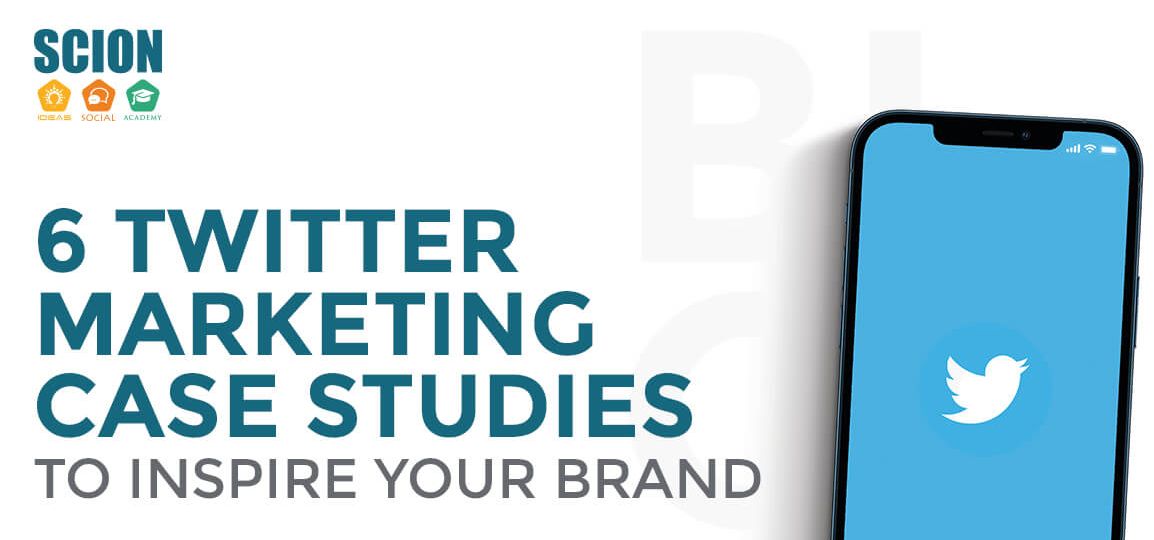
Last Updated: Jan 4th, 2023
Twitter is one of the most popular social media channels for marketing your business. And that’s for some good reasons:
- High Virality & Reach Potential
- The short-form content is relatively easy to create
- You can include links in the content
But how do YOU make the most of it?
In this article, we’ll look at six successful examples of Twitter marketing from companies such as Wendy’s, Sony PlayStation, McDonald’s, and more so you can replicate their success.
Through these case studies, you will gain insights into how each company used creative strategies to increase engagement on the platform and maximize its impact on users. So let’s get started!
You can go through the entire article or you’d jump directly to sections if you prefer.
- Using Humor to Connect with Customers
- Taking Advantage of Influencer Marketing
- Leveraging User-Generated Content
- Creating Custom Hashtags
- Fostering Brand Advocacy
- Aldi vs. Marks and Spencer’s
- Twitter Marketing FAQs
- Final Thoughts
Twitter Marketing Case Studies
Here are 6 Twitter marketing case studies to inspire your Twitter marketing strategy.
1. Wendy’s: Using Humor to Connect with Customers
Wendy’s Twitter Humor is basically the godfather of all funny brand social media campaigns.
Almost every single fast-food chain started doing it now. But Wendy’s is by far the most memorable and the funniest.
Their unique and often edgy jokes help engage followers, gain recognition and foster customer loyalty.
They use their platform to make people laugh while taking digs at their competitors like McDonald’s or Burger King.
In addition, their lighthearted approach to content can make a lasting impression on consumers, putting them at the forefront of the competition.
Here are just some of the funny tweets we found from Wendy’s:
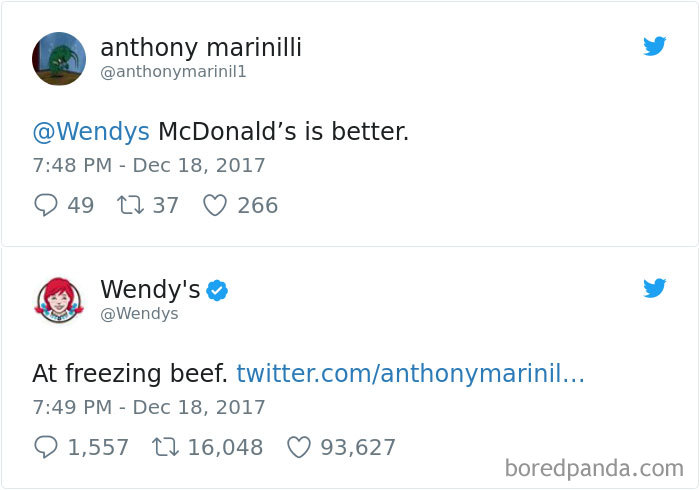
2. Sony PlayStation: Taking Advantage of Influencer Marketing
To promote the launch of its new PS4 Slim console, Sony PlayStation turned to influencers for help.
By partnering with social media personalities and creating engaging content, they were able to reach a broader audience and increase engagement during the product launch.
This strategy was an effective way for the company to showcase the console and generate excitement around it.
Plus, as all the influencers created discussions around the launch, Twitter picked up terms like “PS4”, “PS4 sold out, and tons of others into the trending section.
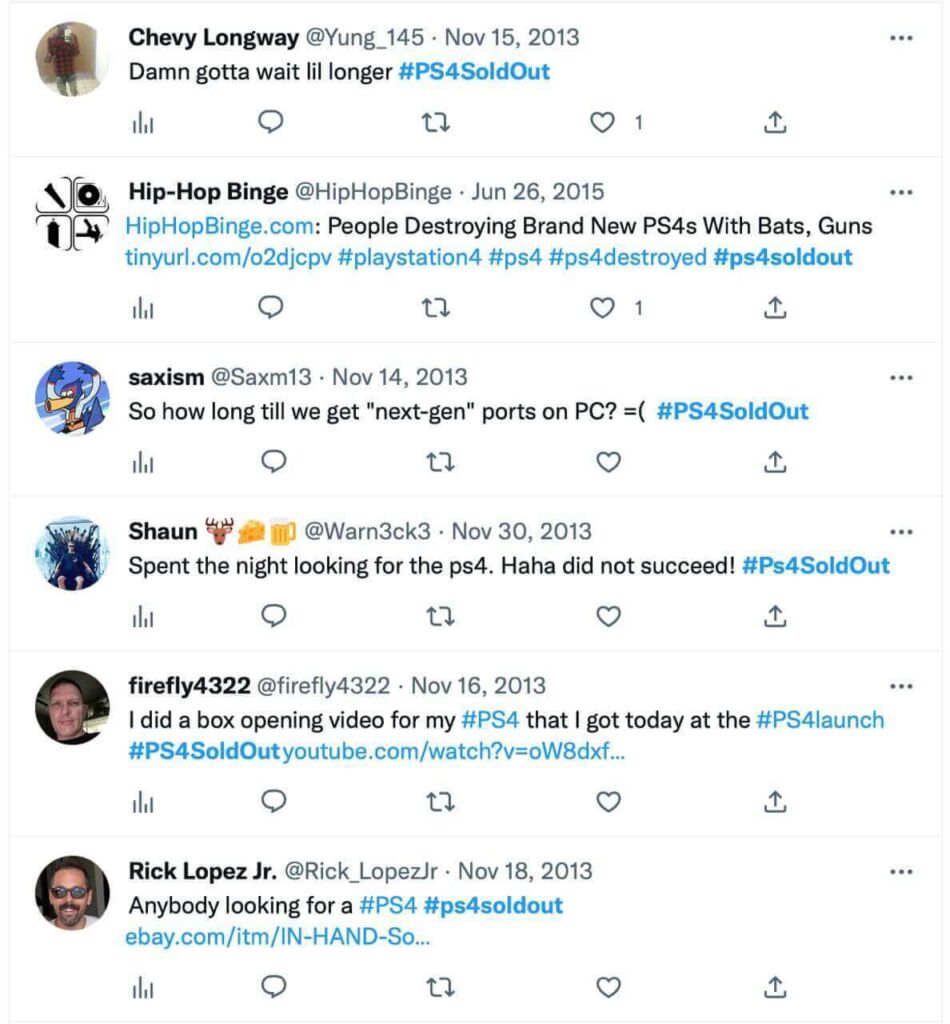
This gave PlayStation a ton of more visibility as a promoted hashtag costs $200,000 per day, but Sony did it organically through influencers.
3. McDonald’s: Leveraging User-Generated Content
McDonald’s ran a campaign that encouraged customers to submit pictures of themselves at one of its restaurants in exchange for a chance to win free food.
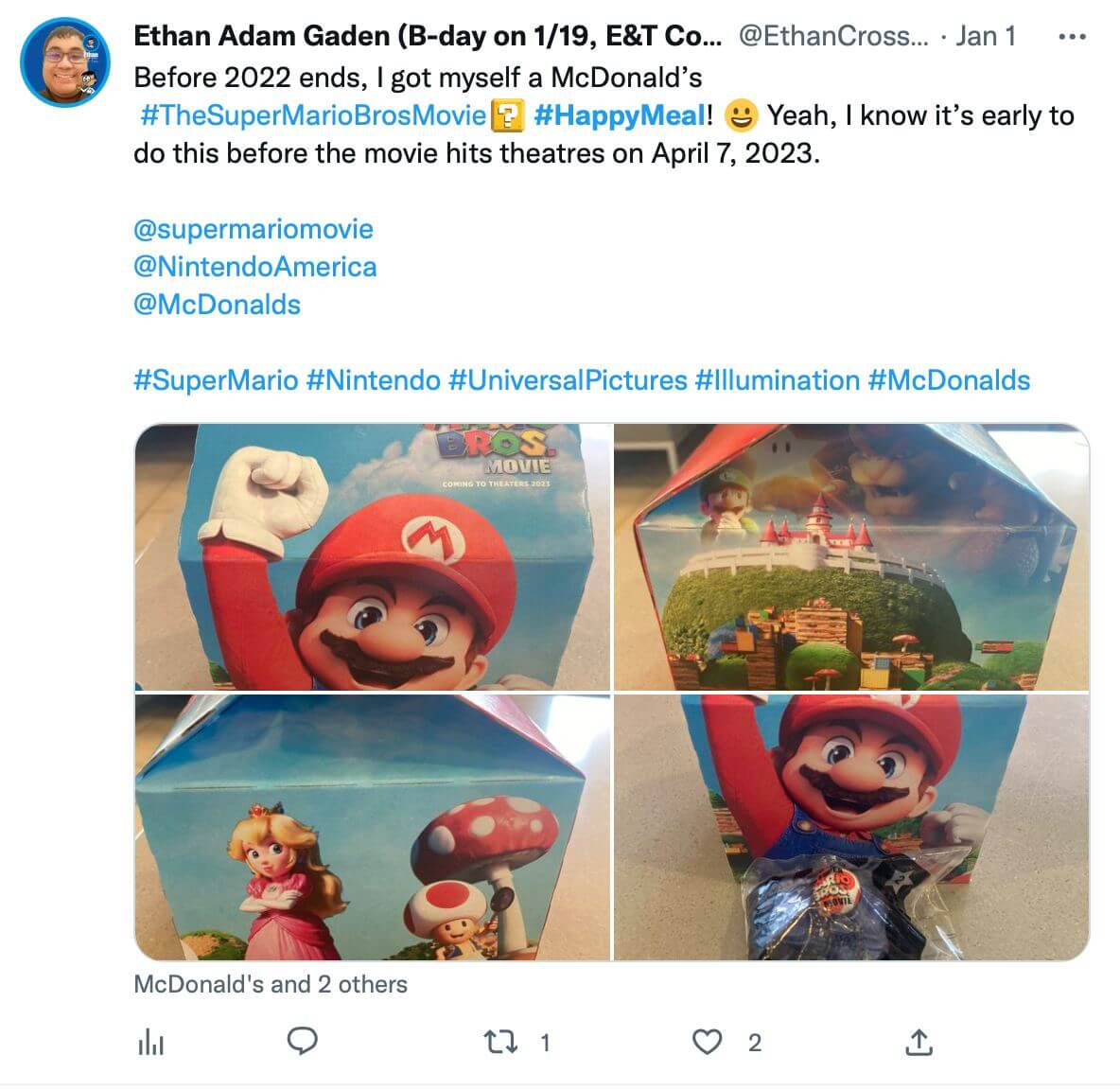
By asking users to share actual photos of themselves enjoying McDonald’s meals, they were able to create an authentic connection between consumers and their brand, which ultimately drove more engagement and loyalty towards their products.
4. Coca-Cola: Creating Custom Hashtags
Coca-Cola developed custom hashtags like #ShareACoke and #TasteTheFeeling, which have been used worldwide by millions of people who enjoy their beverages or want to express support for the company through these designated terms.
The hashtags helped build recognizable brands that increased awareness among potential customers, making them more likely to pick Coca-Cola over other beverage options when shopping.
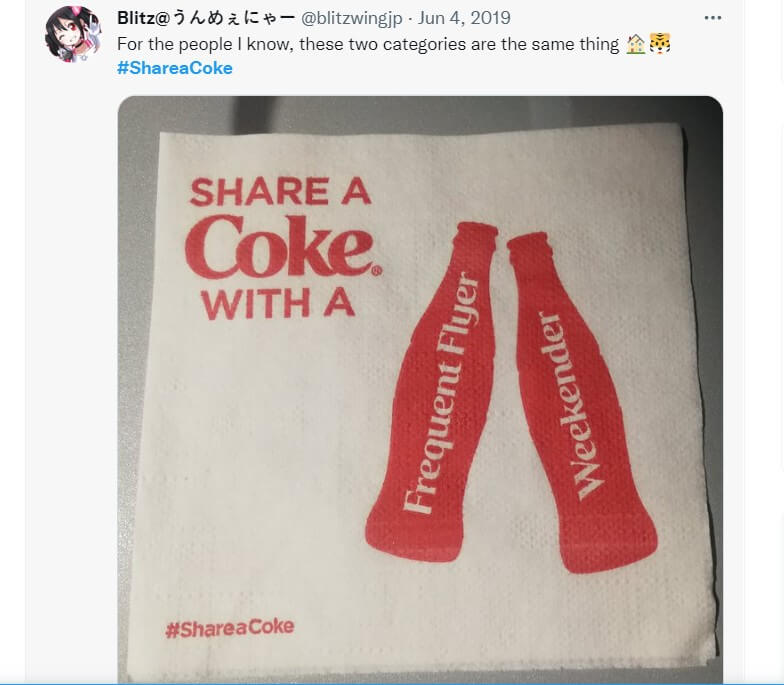
They also paired this with the names on the bottles, which made it even more likely for users to upload a pic to show off their name on the coke bottle.
5. Nike: Fostering Brand Advocacy
Nike has used Twitter to foster brand advocacy among its active customers by encouraging them to share stories about how they embody the “Just Do It” spirit through running or other physical activities.
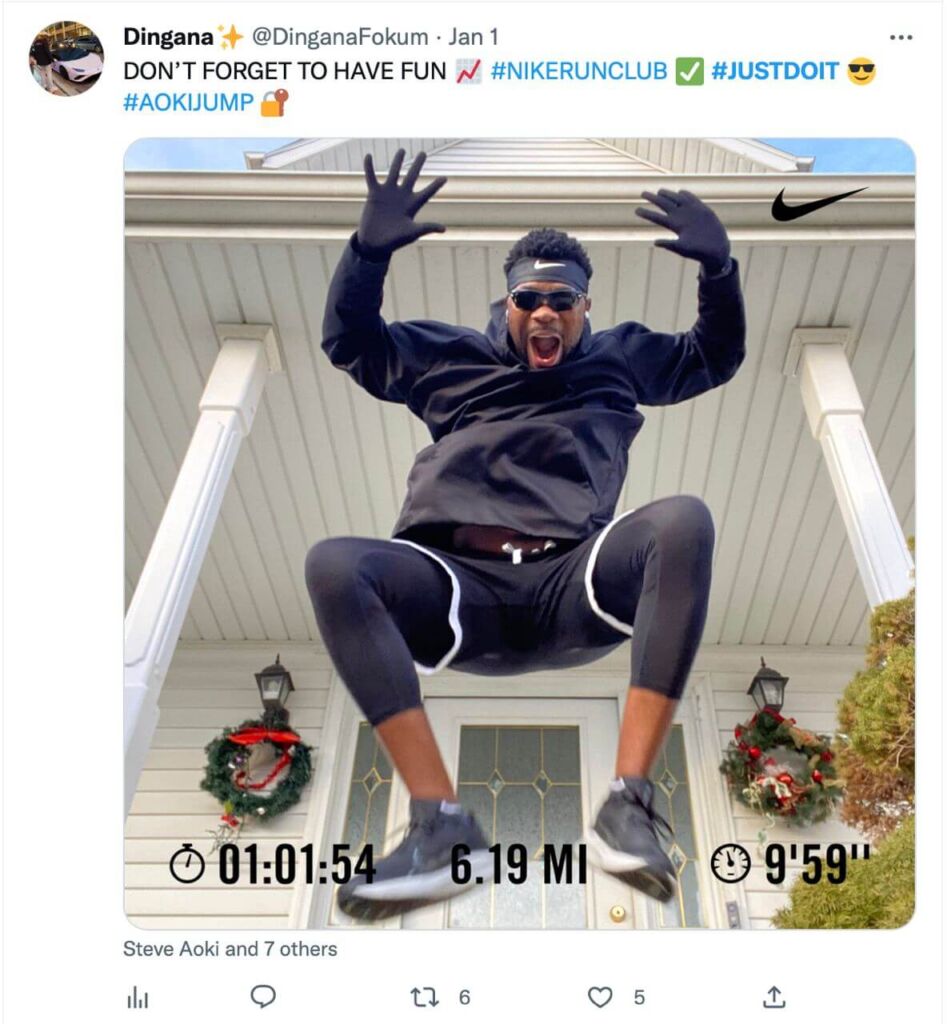
This helps create an online community filled with loyal Nike fans eager to spread positive messages about the company on social media channels such as Twitter, helping boost its reputation further within this space.
It also creates a sense of community.
6. Aldi vs. Marks and Spencers
This case study is from the UK grocery store Aldi, but it’s pretty cool…
Backstory: Marks and Spencers (M&S) decided to sue Aldi because their caterpillar cake design was similar.
Aldi took it to social media to “troll” M & S, which led to the crazy engagement, and even influencers picking up the topic organically.
Oh, and the entire public was on Aldi’s side.
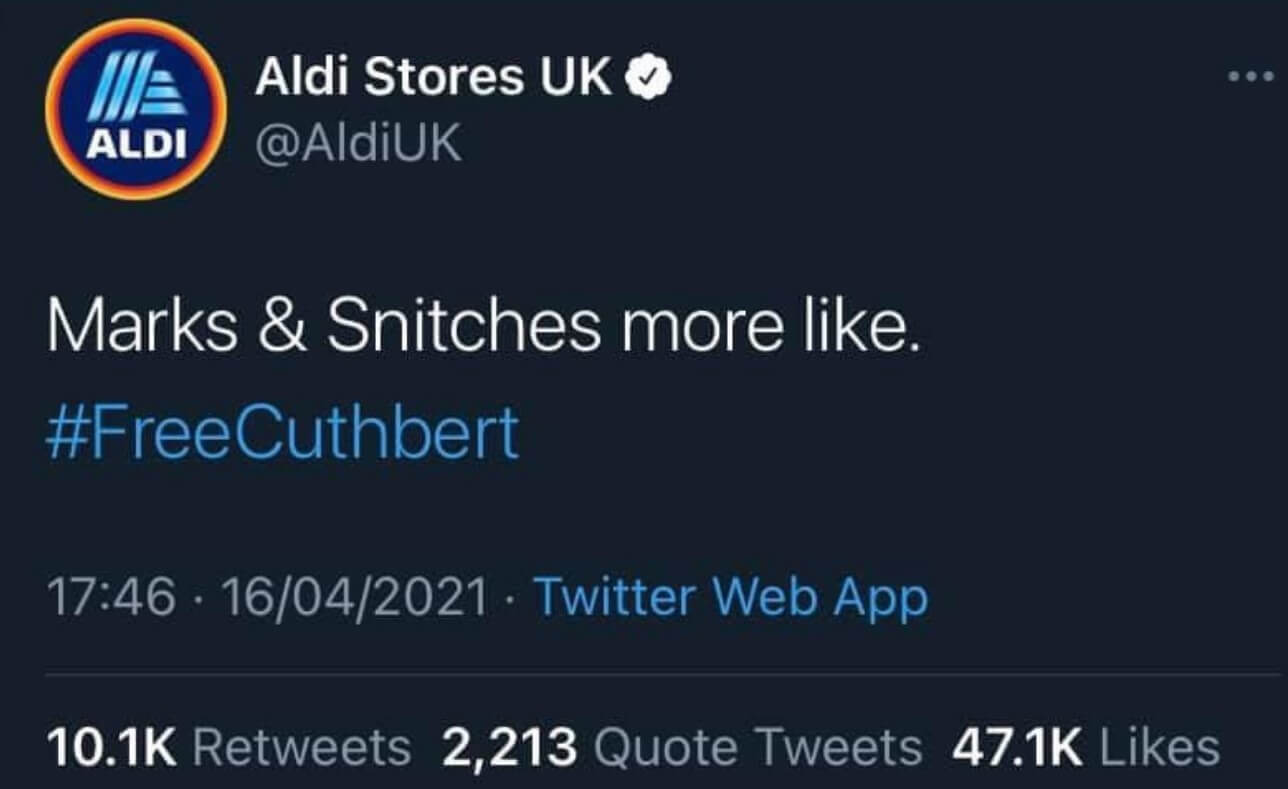
These posts reached millions across Facebook and Twitter and made the public feel more positively toward Aldi.
We’re not sure what the lawsuit’s outcome was, as the two stores reached a “Confidential agreement”, but from a PR perspective, Aldi clearly won.
Twitter Marketing FAQs
Is Twitter still good for marketing?
Yes, Twitter is still a powerful platform for marketing. With its large user base and focus on real-time content sharing, it offers many opportunities for brands to connect with customers and build their presence in the digital landscape.
What makes Twitter unique for marketing?
One of the key benefits of Twitter for marketing is its real-time nature and the short attention spans that it caters to. This makes it an ideal platform for sharing news, promotions, and other time-sensitive content in a way that grabs the attention of users and drives engagement.
How has Twitter changed the marketing industry?
Here are three ways Twitter has changed the marketing industry:
- Twitter has made it easier for brands to go viral
- Twitter has made it easier for customers to reach brands
- Twitter has made it easy to have real-time discussions around trending topics
Why is Twitter good for advertising?
Advertising on Twitter is effective because the ad placements are easily visible, and the platform has excellent targeting tools. In addition, it can sometimes be cheaper than Facebook & Instagram ads because it’s slightly less popular.
Final Thoughts
Overall, Twitter is a powerful and unique platform for marketing that has changed the industry by making it easier for brands to go viral, connect with customers, and take advantage of real-time opportunities.
As we have seen throughout this article, brands can benefit from the following:
- Showing Humor on Twitter
- Leveraging UGC
- Working with Influencers
- Building Community
- Coming up with custom hashtags
We hope you have enjoyed this article on Twitter Marketing Case studies.
If you would like us to help you with your social media marketing strategy, book a free consultation with us here.
Related Posts:
5 Social Media Automation Tools that will cut your time in half
